Editor’s Note: This is a three-part issue, in which I reflect on the prime event of the weekend and make a call for an injection of new energy into our literary readings. It also happens to be a stacked couple of weeks for events across the cities, so be sure to head below the fold for your literary itinerary. Gallivant. Observe. Draw your own conclusions. xoxo Scremes
I. The Scene Report
Saturday night, around half past six, Mo and I slipped out of the sanguine hue of Le Dive and crossed East Broadway to the little unmarked basement door behind which the new French-American literary and arts magazine Notch was hosting the launch party for their debut issue.
Founders Sasha Landauer and Angela Black met in London on a T.S. Eliot and Confucian Philosophy seminar. Immediately drawn to each other (and their shared love of Guinness), they started developing ideas for a literary and arts magazine that would honor Eliot’s concept of existential time.
Upon arrival, Mo and I doffed our coats, exchanging them for lychee martinis. The crowd — made up of a range of ages and nationalities — mingled as Sasha and Angela lanced through the crowd, les doyennes du soir.
In the back garden, where Angela and I retreated for a brief tête-à-tête, I asked her where the name for the magazine came from. She recounted the story of the Guinnesses to me here and told me that her and Sasha had been toying with the idea of something Greek — Kronos, or perhaps Artemis. This led them to the icon of an arrow, and finally allowed them to land on Notch, that word with double meaning — the space in which the arrow is drawn back, in which the tension is held before release; and also the mark that measures the passage of time — in the post as a child grows, in the prison wall as the revolutionary waits.
Conversation, like the Heavensake Junmai, flowed at dinner. Toasts were made and congratulations leveled. After dinner, a string quartet played, contributors read, Manojo Mezcal poured tastings and the party opened up, carrying on well past midnight. There was an energy to the evening that felt bright, intellectual but starry-eyed, grateful.
On the train home, I’d drunk too much sake and smoked too many Capris, but I felt refreshed. Creatively, artistically refreshed. I had come away from a downtown literary event with a sense of newness, of leaving behind the same old.
This gave a glimmer of hope, a pinprick of light shining out against a void that has begun to expand in my mind in recent months: The downtown literary scene has become a spectacle. I’ve spent the past few days attempting to uncover why this is and what is to be done about it.
The downtown literary scene has become a spectacle.
II. Analysis of a Scene
What was so exciting about the downtown literary scene when it was emerging five years ago? This is the question I asked myself on the train home from the Notch party and it’s one I’ve been thinking about in the days since. Ultimately, I’ve landed on three central vectors: i) appealing aesthetics; ii) alternative, even incendiary politics; and iii) access to new art and thinking that wasn’t being gatekept by traditional institutions. In short, all three vectors speak to a rejection of stereotypes and prescriptions — about how writers behave, what a literary reading can be, what type of art is worth being made, etc.
Now, when I write about the “Downtown Literary Scene” I don’t only refer to writers living and reading below Houston. Yes, the situ matters to an extent, but this Scene extends across cities and especially throughout the internet. More on this below.
For the uninitiated, as well as my extremely tapped in peers, I’ll attempt to trace the broad strokes of the current Downtown Literary Scene’s history. There are far too many players and moments to discuss in detail within a single newsletter, so I shall highlight the most important. My aim is to provide a sense of the cultural turns that have led us to the present moment in literary culture.
Let’s start by setting our Year 0 at 2019. I was living in LA hosting Sundays with Scremes, a seminar party series, the first of which hinged on the theme of the “Nine-Ender,” a theory popularized by the philosopher and former Al Gore speechwriter, Daniel Pink, that suggests that people push themselves to bold action at ages that end in 9. With my seminar, I expanded this theory to years themselves, wondering if 2019 would be a year of bold action.
In the rear view, the relevance of the nine-ender for this story is indeed closer than it may appear. 2019 was a hinge, a cultural rubicon, that, once crossed, fundamentally shifted the way writers and scenesters write, behave and think.
Let’s back up though. The prehistory of the Downtown Literary Scene is based as far back as East Bay punk in the ‘80s, the hipster scene of the aughts, the Tumblr and Twitter Internet of the 2010s, The McKibbin Lofts…
Then, the immediate pre-history leading to the emergence of this scene centers around the 2016 election. I shall not attempt to make an in-depth political analysis here (Sean Monahan’s latest 8Ball is excellent supplementary reading.)
But in terms of the Scene, a disaffectedness across the political spectrum arose among millennials and Gen Z (between which I squarely fall fyi) during and after the 2016 election — in the rise of the Dirtbag Left, in the growing perception that the DNC was corrupt, had squashed Bernie Sander’s campaign and anointed Hillary Clinton, and in the curious mixture of shock, nihilism, and delight with which Trump’s entrance into office in 2017 was met.
If it feels simplistic to tag this progression to things such as a presidency or pandemic, I ask you to look at the long arc of history. Cultural, political, and economic trends inform each other, inextricably linked.
So, 2019 comes around, the end of the second decade of the 21st century. With it comes Red Scare. It doesn’t matter if you revile them, Anna Khachiyan and Dasha Nekrasova were incredibly influential and organic tastemakers. Much of cultural taste today can be attributed to them. The early days of their podcast also frequently featured genuinely interesting writers and scenesters — Brontez Purnell, Hari Nef, Natasha Stagg, Ariana Reines — company that has now been replaced with far duller voices.
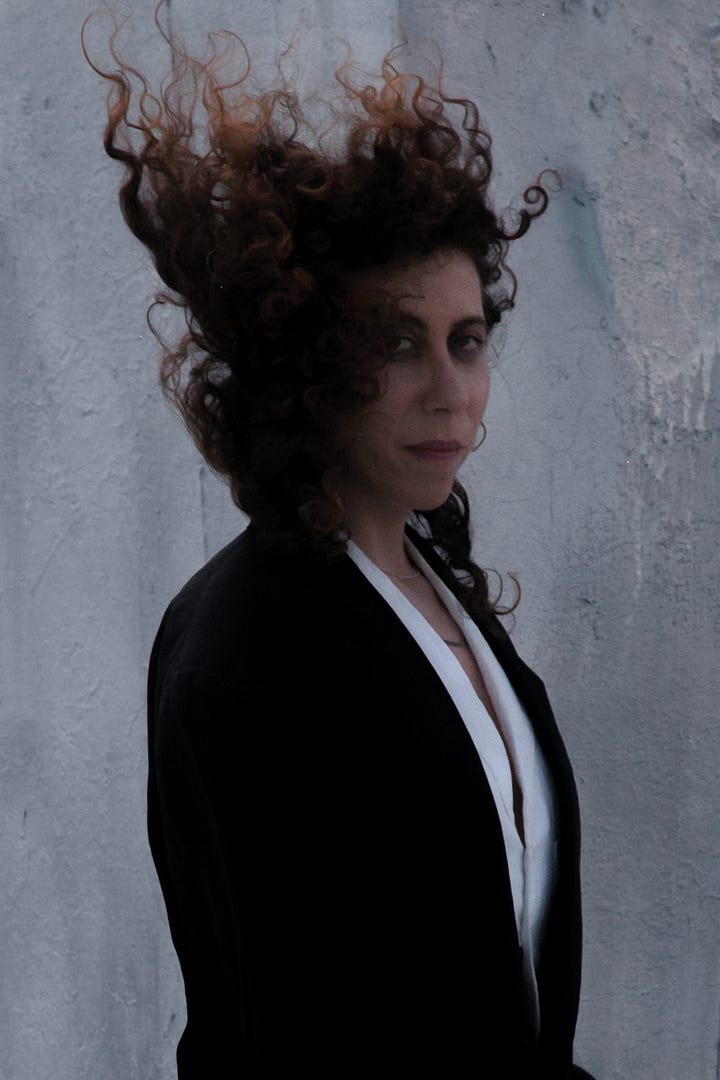
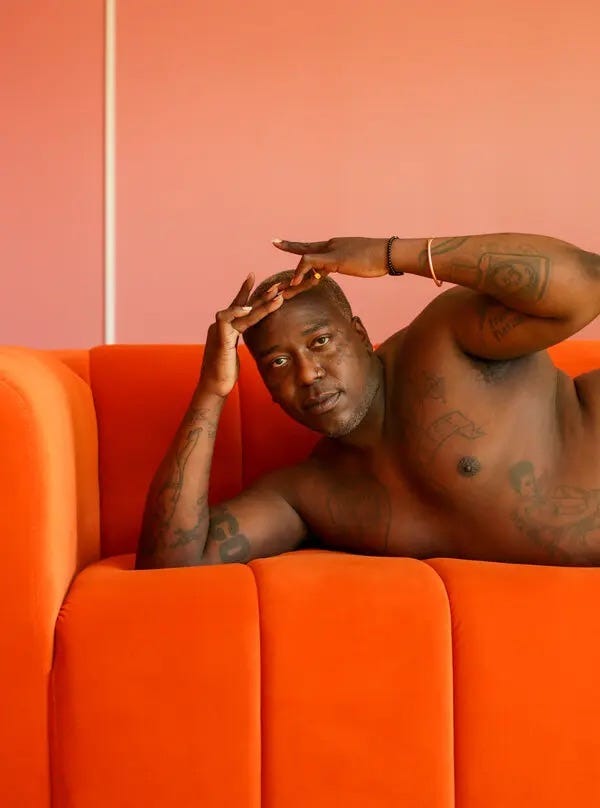
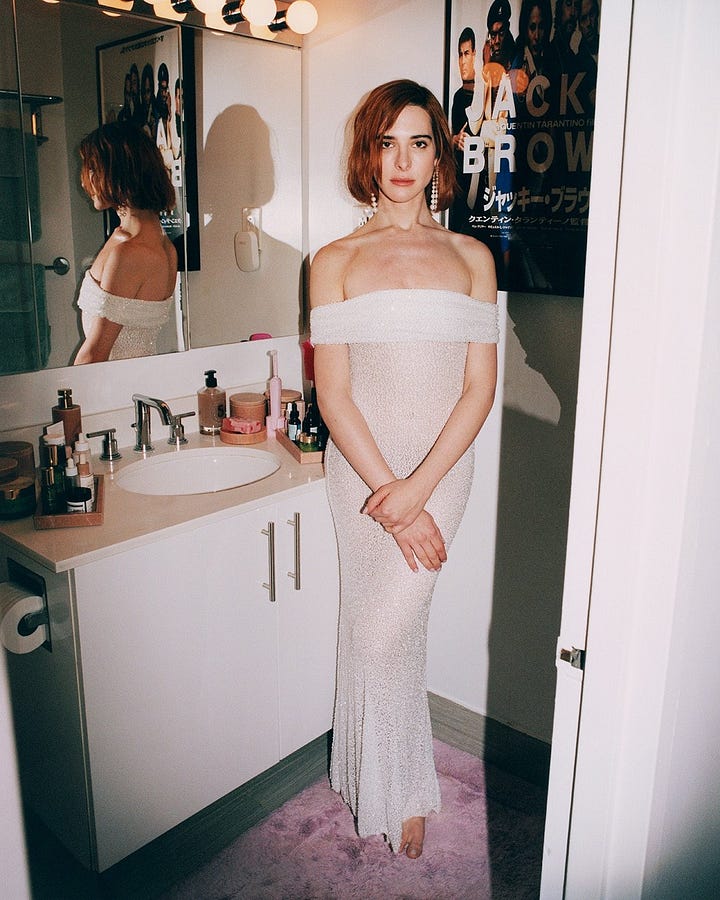
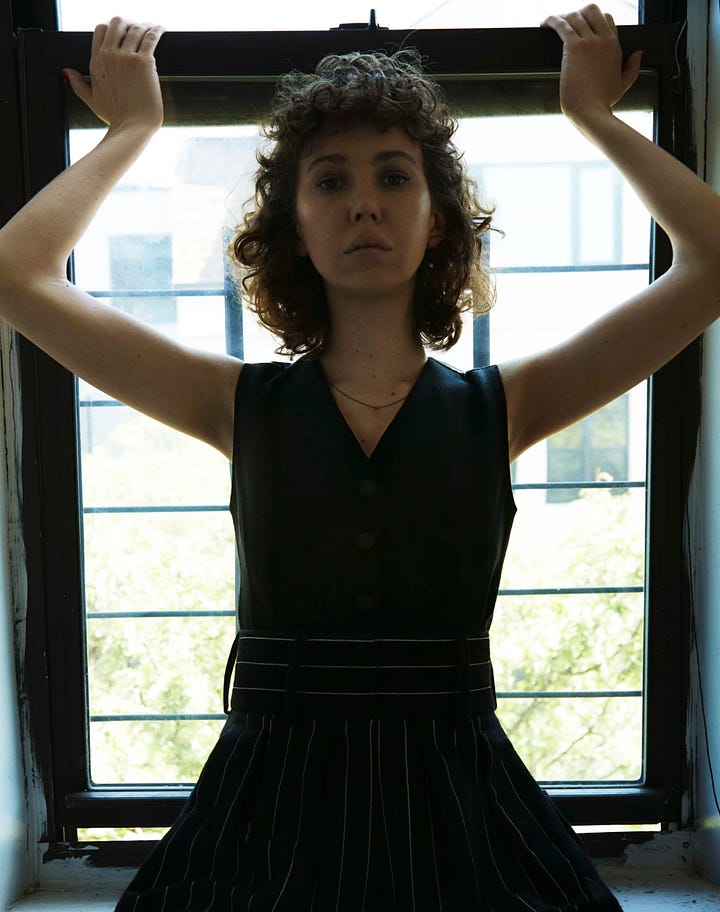
Of course, the fall of 2019 also brought the first whispers of a new highly contagious virus that was killing people in China, Iran, and Italy, which brings us to the second period of the Downtown Literary Scene.
After the first few months of quarantine and lockdown, during which people were more online than ever, New York City experienced a delightful renaissance in the summer and fall of 2020, with an explosion in outdoor dining and street closures and people hanging out again. I remember flying into the city on November 10, 2020 to see friends, the day the next election was called for Biden. People voted in that election for one thing: a return to normalcy. They were tired. As Monahan astutely put it, “the Democratic Party misread the public mood and thought they had a mandate to institutionalize progressive ideology.”
During this era, the Downtown Literary Scene exploded. Civilization (launched 2018, hit its stride 2020), The Drunken Canal (launched Summer 2020), Angelicism (launched November 10, 2020), Are U Coming? (launched June 7, 2021) — people were publishing independently and sexy hedonistic partying was so totally back babe.
2021 brought an aberration in the independent publishing world. When founder and editor of Tyrant Press, Giancarlo DiTrapano died in March, many writers who had been his discoveries and protégés found themselves with unfinished, unedited, or unsold manuscripts that they needed to get into the hands of new editors and publishers. Several of these books have eventually come out from various presses, others haven’t, and I think it remains to be seen how DiTrapano’s legacy — a legacy of his taste in literature — will play out in publishing in the years to come.
Since 2022, the number of reading series in New York has skyrocketed. It has indeed been a renaissance and is one of the key reasons that I started this newsletter. Beckett Rosset opened his West Village loft, under constant threat of eviction, to literary and art parties that felt like old school New York. Matthew Gasda staged his play Dimes Square there. Matt Starr and Zack Roif started Dream Baby Press. Myka Kielbon and I started Boyfriends & Family. The Cobrasnake was back. Kevin Carpet was back. Julia Fox was so very back.
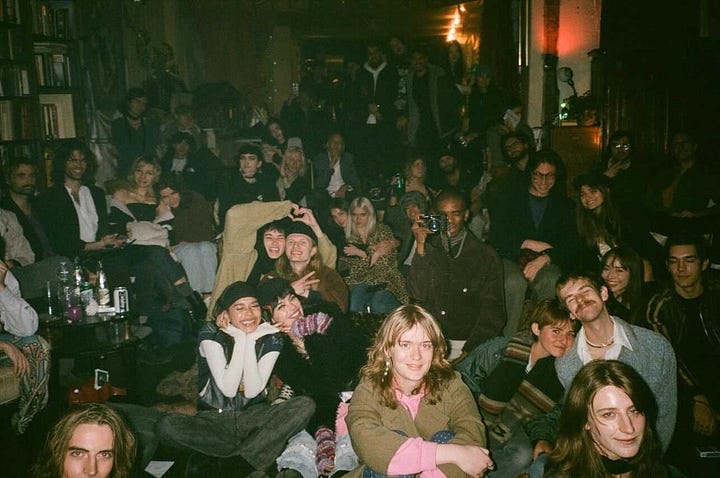
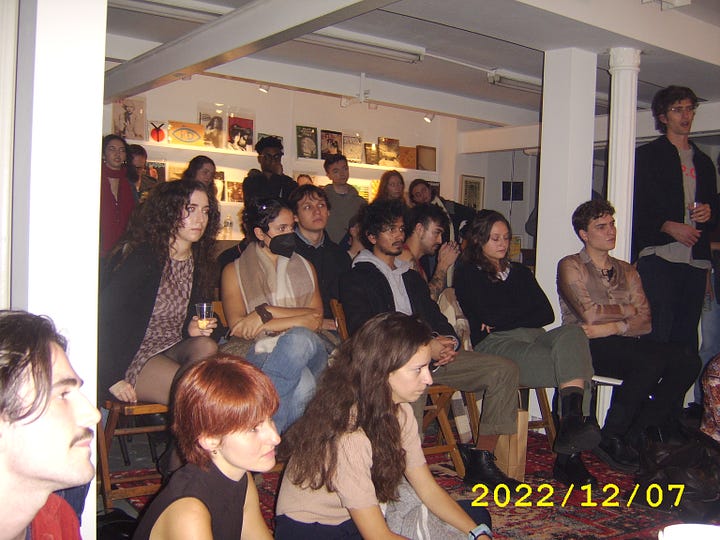
So what have we arrived at now, as we near the end of 2024? What I see is the mass adoption of the aesthetic signifiers of this subculture without the substance of the work.
When there was political value to the scene, there was a distinct sense of class consciousness connected to it. A sort of Marxist libertarianism informed a lot of the scenesters, combined with an aesthetic sensibility drawing on imagery and iconography of the decadents and bohemians that rejected the minimalism that had been promoted through the 2010s, flattening culture.
There was also a move toward a permissiveness to speak and write transgressively without fear of cancellation, or perhaps more precisely with the mindset that cancellation (of a certain tenor) was essential for success (of a certain type). Like the aesthetic rejection of minimalism and wellness in favor of maximalism and decadence, behavior and writing became more hedonistic and louche in rejection of puritanical restrictiveness and the rules of wokeness. Unfortunately, this very valid praxis of rejecting the policing of speech has been watered down to lesser writers’ obsession with saying r*tarded in public.
III. An Appeal
Here are my complaints:
Writers in the past couple of years have adopted and rehashed aesthetics — visual, textual, and energetic — to the point that they have become nothing more than a pose. If there’s one thing I can’t abide, it’s posturing. I demand that people be themselves!! So much more interesting.
However, there will always be shallow imitators. Perhaps my bigger complaint lies with tastemakers losing the plot. You may not like them, but in 2019, 2020, I deeply respected Anna and Dasha and the rest because they were tastemakers. They were pushing culture forward. Now, they and many others like them have fallen into the trap of easy clicks (however that word translates to its specific context) via pure reactionism.
But here’s my biggest complaint of all: In this culture of readings and launches and literary parties, I see the same thing over and over again. If you transcribed the readings from any given night at Dream Baby Press or Tense or The Thing Is… or Confessions, and put them anonymously side by side, I would be likely to congratulate the writer on maintaining a consistent and cohesive voice.
In case it’s not obvious, this is not a compliment. We should not want out promising young writers to all sound the same.
It’s incredibly discouraging to hear diaristic “stories” or “essays” that haven’t had a lick of editing, delivered onstage in monotones punctuated by “relatable” jokes and memes in Twitter speak.
What I want from a reading is to hear unpublished work or new work in an independent magazine that reaches the frayed edges of things. Newsflash: the internet (it lost it’s capital I in 2016 remember!!), “reactionary” politics, anti-woke language, and nihilistic recounts of eating disorders or crypto-facism popularized almost six years ago is not the frayed edges. Enough is enough. I’m bored. *Obama Voice* Let me be clear: I love literary New York. I love readings. Which is why I want them to shimmer and shine.
We should not want out promising young writers to all sound the same.
On the most recent episode of the Limousine podcast, friends of the sub Leah and Heather referenced Vincent Cunningham’s comment that writers of contemporary literature who cite other literature within their own work are valuable because books need to tell you how to read them. Readers like a referential author because they show readers where they’re trying to go via their references, which is far more interesting than the “my characters are brain dead and read tweets” school of contemporary writing.
Friday night I was sitting at the bar in Dear Friend Books while waiting for the release party of Algeria, Capital: Algiers at The Word is Change, having a glass of wine with my new friends Ash and Bri, when a regular came in to drop off a birthday pie for Bri. He came in with such extraordinary energy, the physical manifestation of “verve” and Bri was like, “you totally changed the energy in here man,” in response to which he simply launched into a story about that day’s events, that he punctuated with the phrase, “Alright I’ll catch you later when the hip crowd comes back.”
The hip crowd. Well there you go. That’s what I think we ought to be after. Get hip. Get with it. Drop the artifice and the pose. And write about the real world.
Wed, Nov. 13: Dead Mall Press Poetry Reading feat. Isaac Pickell and Giulia Bencivenga | 8 pm ET/5 pm PT Online. DM [at]deadmallpress on IG for the link. Free.
Wed, Nov. 13: I <3 NYC Is Burning… Wish You Were Here… feat. Ash Pattison Scott, Maeve Barry, Cameron Darc, and Lauren Kane | 7:30 pm at Bar Jade (4 Stuyvesant Ave. BK). Free.
Fri, Nov. 15: Tense: Is That All There Is, feat. Lucy Sante, Guy Dess, Beckett Rosset, Adeline Swartzendruber, Mairead Kiernan, Chloe Pingeon, and Chris Bray | 8 pm at Sovereign House (185 E Broadway, NY). Tickets $20.
Fri, Nov. 15: Car Crash Collective: The Rapture feat. Malone Urfalian, Annika Gavlak, Nicola Munson, Ruby Zuckerman, and Ross J. Farrar | 9 pm at Secret Location (DM [at]carcrashcollective on IG for location). Free.
Sat, Nov. 16: Heavy Traffic European Tour feat. Issy Wood, Dean Kissick, Clive Martin, Hannah Regel, and Sarah Thomas | 6 pm at Camden Art Centre (Arkwright Road, NW3, LDN). Free.
Sun, Nov. 17: NNOO at YESS feat. David Horvitz, Sophie Appel, Constance Debré, Same Shoemaker, Valentina Rosset, Sammy Loren, Junya Yamasaki, and more | 7 pm at Yess Cafe (2001 E 7th St. LA). Free.
Sun, Nov. 17: Confessions hosted by Cassidy Grady and Annabel Boardman, feat. Aimee Armstrong, Conor Hall, Bijan Stephen, Peter Vack, Carrigan Miller, and Daniel Fishkin | 7 pm at KGB Bar. Free.
Mon, Nov. 18: Dopamine Books presents: The Slicks by Maggie Nelson, feat. Alba Jones, Harry Dodge, Yasi Salek, Seth Bogart, and Maggie Nelson | 7 pm at Poetic Research Bureau (2220 Beverly Blvd. LA). Free.
Mon, Nov. 18: Murakami Midnight Madness: Release Party for The City and Its Uncertain Walls by Haruki Murakami, feat. raffles + Japanese snacks and bevs | 10 pm at Three Lives & Company (154 W. 10th St. NY). Free, books on sale at midnight.
Tues, Nov. 19: Letters & Soda hosted by Lana Schwartz, feat. Henry Block, Ilana Michelle Carmi, Megan Broussard, Leah Abrams, and Carrie Wittmet | 6:30 pm at Greats of Craft LIC (10-15 43rd Ave. LIC). $5 at the door.
Wed, Nov. 20: One Winged Dove by Matthew Gasda, presented by Brooklyn Center for Theatre Research | 7 pm at 60 Thomas St., NY. $17 early bird tickets currently available.
Thur, Nov. 21: Roasting House Reading Series feat. friend-of-the-sub Leah Abrams and other mystery readers | 7 pm at Kos Kaffe Roasting House (251 5th Ave. BK). Free – RSVP here.


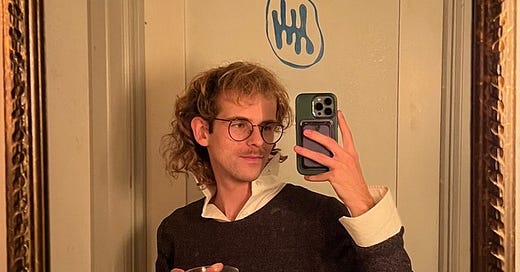


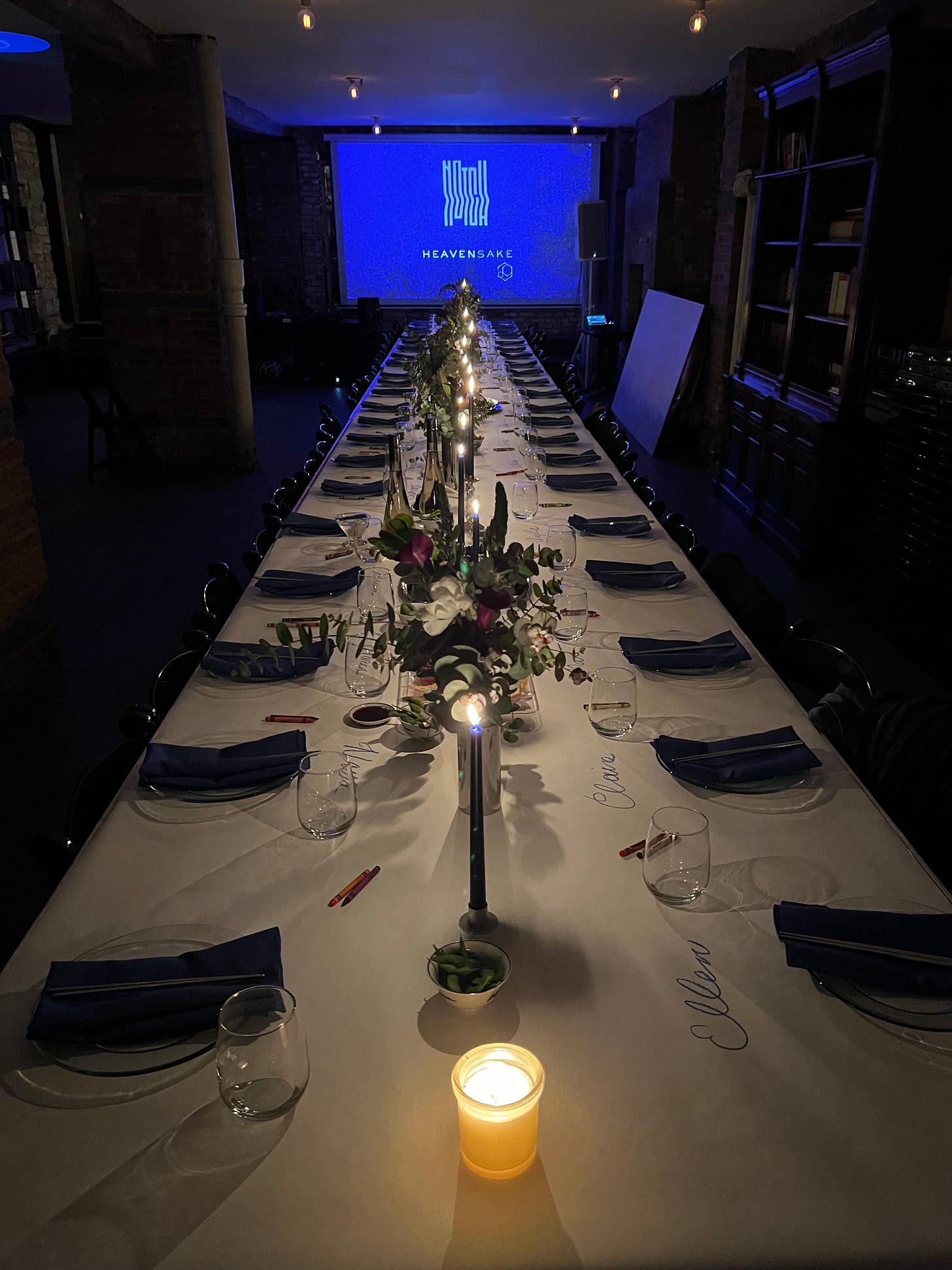
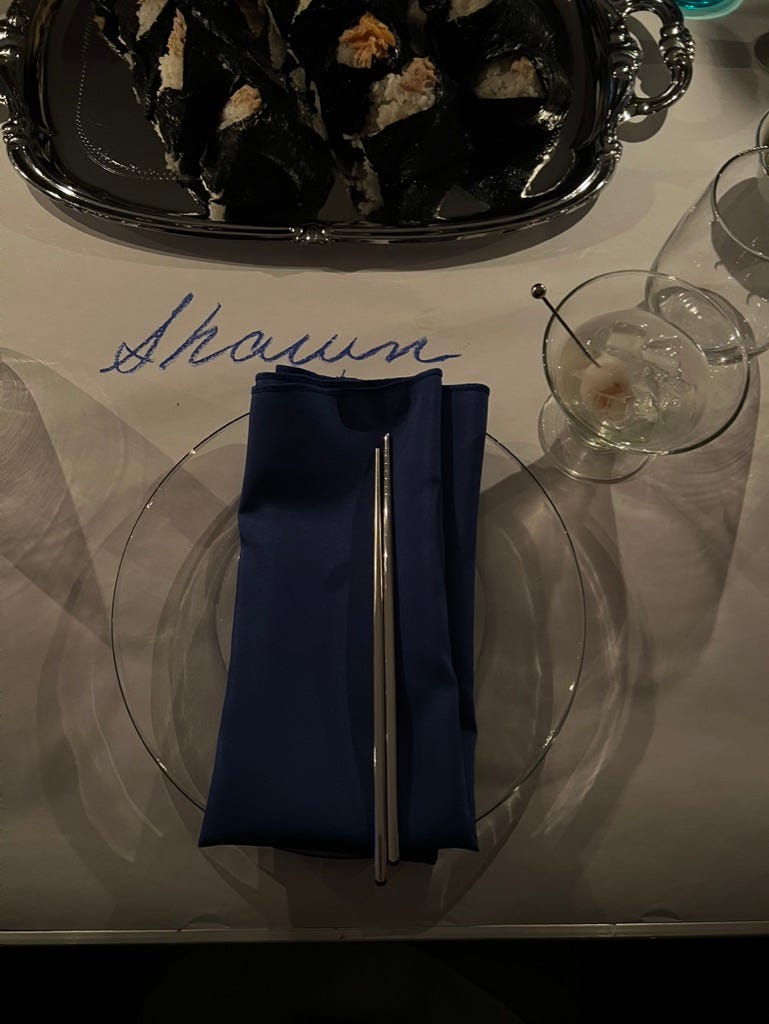



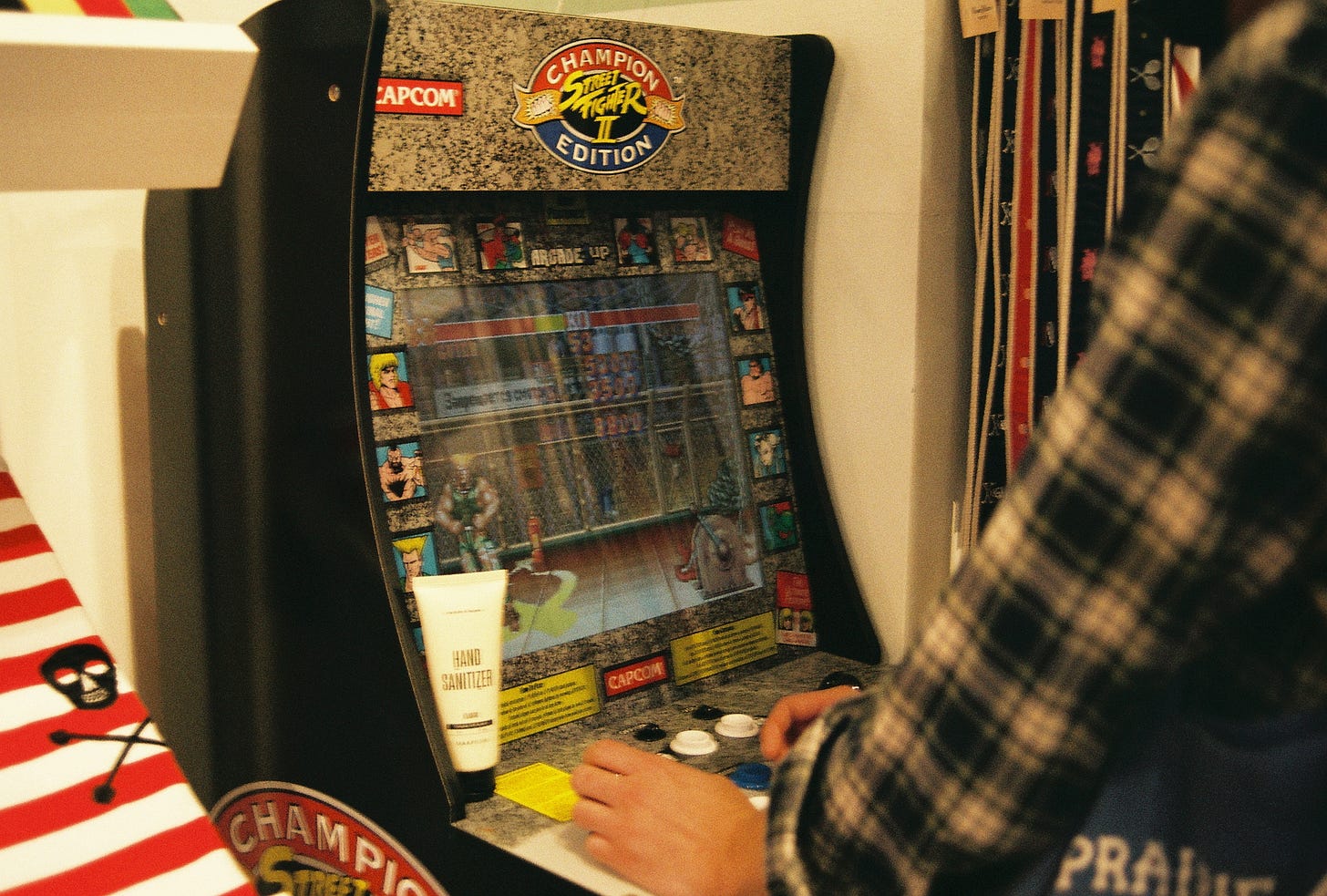
an honestly fascinating analysis!